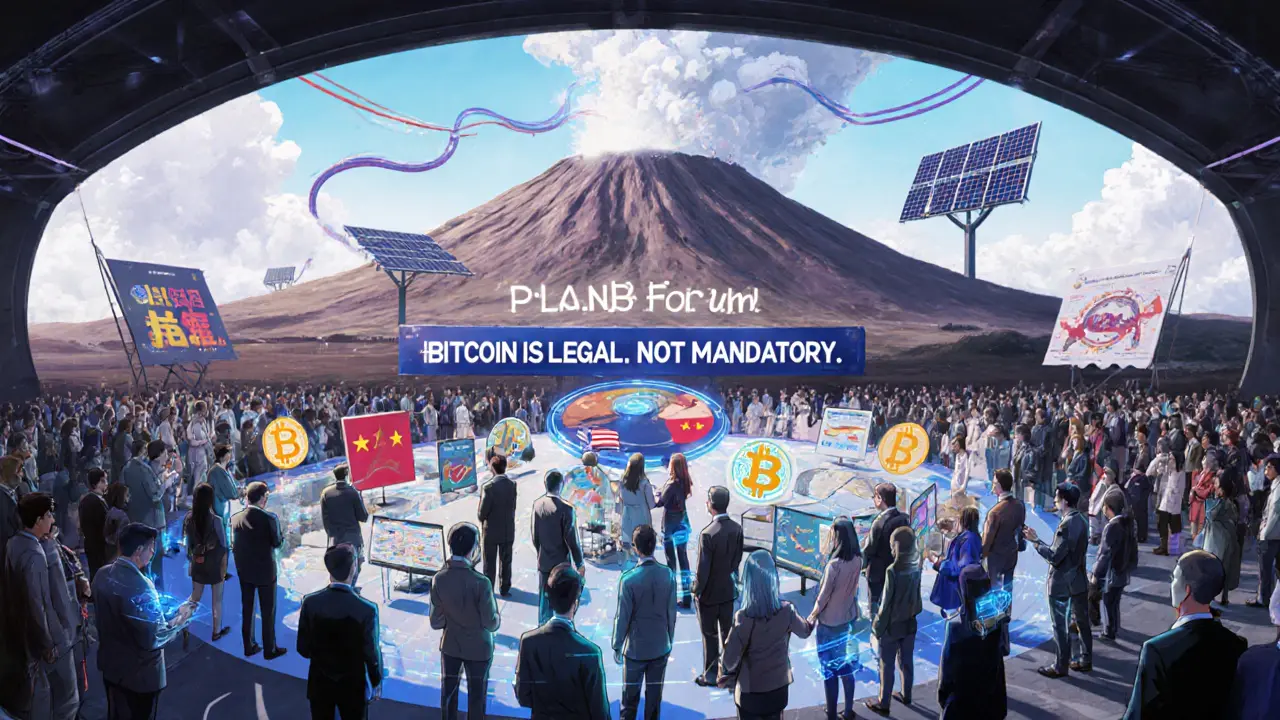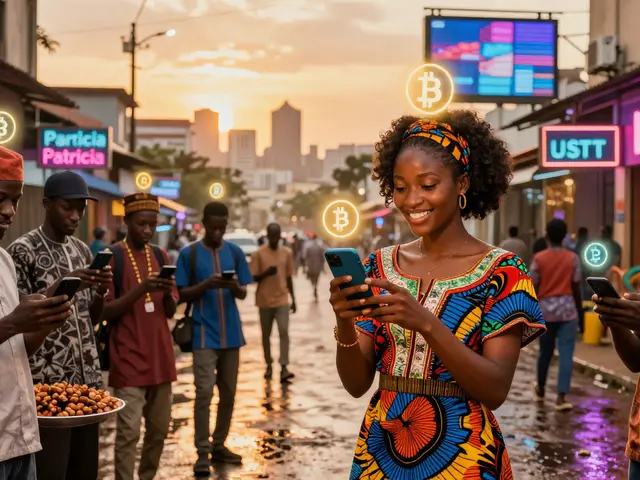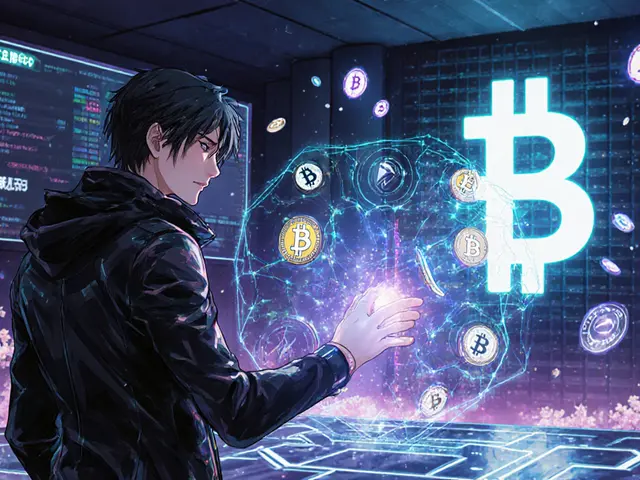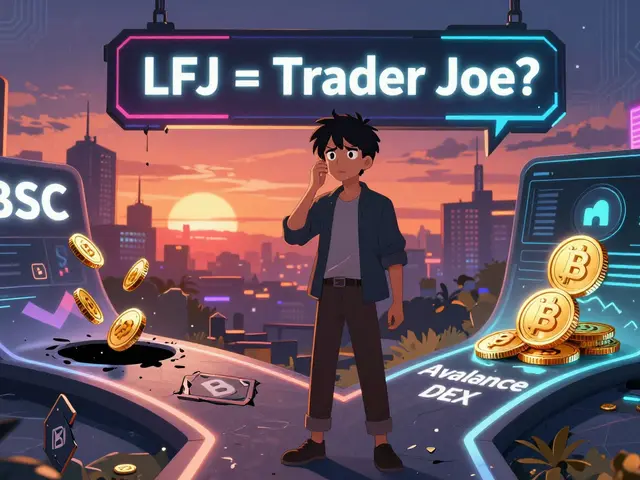El Salvador Bitcoin Reserve Value Calculator
How Much Is El Salvador's Bitcoin Reserve Worth?
El Salvador holds 6,102 Bitcoin as of March 2025, worth approximately $500 million. This calculator helps you understand the value of this reserve at different Bitcoin price points.
El Salvador's Bitcoin Holdings: 6,102 BTC
Current Reserve Value: $0
Historical Context: Government began buying Bitcoin at $47,000 per coin in 2021
El Salvador didn’t just try Bitcoin-it made it legal tender. In September 2021, it became the first country in the world to give Bitcoin the same status as the U.S. dollar. The goal? To help the 70% of Salvadorans without bank accounts, cut remittance fees, and break free from dollar-dependent economic policies that had locked the country in since 2001. President Nayib Bukele called it a revolution. But by January 2025, the government quietly dropped Bitcoin’s legal tender status. So what went wrong? And why is El Salvador still buying more Bitcoin than ever?
Why Bitcoin? The Problem That Started It All
El Salvador’s economy runs on dollars. Since 2001, it stopped using its own currency, the colón, and adopted the U.S. dollar. That meant no control over interest rates, no ability to print money during crises, and no monetary independence. But the bigger issue was access. Around 70% of adults had no bank account. Sending money home from the U.S.-which makes up nearly 25% of the country’s GDP-cost 10-20% in fees. That’s $1 billion a year going to middlemen like Western Union and MoneyGram. Bitcoin looked like a fix. No banks needed. No intermediaries. Just a phone and a wallet. The government promised lower remittance costs, financial inclusion, and a new tech-driven economy. It wasn’t just about money-it was about sovereignty.The Chivo Wallet: A Promise With a Broken Interface
The government rolled out the Chivo Wallet as the official Bitcoin wallet. Every citizen got $30 in Bitcoin just for downloading it. Over 4 million people signed up-nearly 70% of the population. But here’s the catch: most never used it to pay for anything. By 2025, only 1% of remittances were sent via Chivo. Why? The app crashed often. The interface was confusing. People didn’t understand how to convert Bitcoin to dollars. And when they did, the fees weren’t always lower than traditional services. Many used the wallet just to cash out their $30 bonus and never touched it again. Meanwhile, 82% of small businesses started accepting Bitcoin. But that didn’t mean they held it. Most instantly converted it to dollars through third-party processors. They didn’t want to risk losing money when Bitcoin dropped 20% overnight. The system worked as a payment bridge, not a currency.The Strategic Bitcoin Reserve: Buying the Dip, Even When It Hurt
While citizens hesitated, the government kept buying. At the peak of the 2021 bull run, El Salvador bought Bitcoin at $47,000 per coin. Then the market crashed. Bitcoin fell to $16,000 in 2022. Most countries would’ve sold. El Salvador bought more. By March 2025, the country held 6,102 Bitcoin-worth about $500 million. That’s not a speculative gamble. It’s a strategic reserve. The government treats Bitcoin like gold: buy when others are scared, hold long-term, and wait for the next cycle. They even bought 8 more BTC in early 2025, despite the legal tender status being gone. This isn’t about daily spending. It’s about long-term value storage. The U.S. dollar is strong, but inflation and global instability make alternatives attractive. Bitcoin, despite its volatility, is seen as a hedge against future currency devaluation.
The IMF Pushback: Why Legal Tender Had to Go
The International Monetary Fund never liked it. In 2022, they offered El Salvador a $1.4 billion loan to stabilize its economy. But there was a condition: scrap Bitcoin as legal tender. Why? The IMF argued Bitcoin’s volatility threatened fiscal stability. If the government held Bitcoin and its price crashed, the state could lose billions. They also worried about money laundering, tax evasion, and lack of regulatory oversight. El Salvador agreed. In January 2025, Bitcoin was no longer legal tender. Businesses no longer had to accept it. The legal requirement vanished. But the government didn’t abandon Bitcoin. It just changed the rules: private sector adoption still allowed, no state mandate. This wasn’t a defeat. It was a pivot. The country kept its Bitcoin. It kept its vision. It just stopped forcing people to use it.Bitcoin City: The Dream That Still Lives
One of the most ambitious parts of the plan was Bitcoin City-a planned metropolis powered by geothermal energy from the Conchagua volcano. The idea? Build a tax-free zone where Bitcoin is the main currency, attract crypto entrepreneurs, and create jobs. Construction hasn’t started. But the concept didn’t die. In March 2025, El Salvador hosted the PLANB Forum 2025-the largest crypto conference in Central America. Investors from the U.S., Europe, and Asia showed up. Startups pitched blockchain projects. The message was clear: El Salvador still wants to be the crypto hub of Latin America. The government now focuses on infrastructure: fiber-optic networks, crypto-friendly visas, and tech education. It’s not about forcing Bitcoin on citizens anymore. It’s about building a place where crypto businesses want to operate.
What’s Real? The Numbers Don’t Lie
Let’s cut through the noise:- 82% of small businesses accept Bitcoin - but only as a payment tool, not a store of value.
- 1% of remittances use Bitcoin - most people still use traditional services.
- 6,102 BTC held by the state - more than any other government on Earth.
- 70% of adults downloaded Chivo - but only a fraction use it regularly.
- 0% of Salvadorans are required to use Bitcoin - legal tender status was removed in January 2025.
Where El Salvador Goes From Here
El Salvador’s Bitcoin story isn’t over. It’s evolving. The country now operates on a hybrid model:- Bitcoin is not legal tender - but it’s legal to use.
- The government still holds and buys Bitcoin - as a reserve asset.
- Businesses can accept it - but they’re not forced to.
- Education and infrastructure are expanding - not mandates.
- Bitcoin City is still on the table - as a future project, not a promise.
What Other Countries Can Learn
El Salvador’s experience shows that you can’t mandate adoption. You can’t force people to trust something they don’t understand. Technology doesn’t change behavior overnight. The real win? Proving that a small, developing nation can hold Bitcoin as a sovereign asset. That’s something no other country has done at this scale. If you’re a nation considering crypto, here’s the takeaway:- Don’t make it mandatory. Make it useful.
- Don’t spend your treasury on hype. Buy when prices are low.
- Don’t ignore the IMF. But don’t let them dictate your future.
- Focus on infrastructure, not slogans.
- Let the market decide-not the government.
Is Bitcoin still legal in El Salvador in 2025?
Yes, Bitcoin is still legal in El Salvador in 2025, but it is no longer legal tender. The government removed its mandatory status in January 2025 to meet IMF conditions. Businesses and individuals can still use Bitcoin voluntarily, and the state continues to hold and buy it as a reserve asset.
Why did El Salvador drop Bitcoin as legal tender?
El Salvador dropped Bitcoin’s legal tender status in January 2025 as part of a deal with the International Monetary Fund (IMF) to secure a $1.4 billion loan. The IMF argued that Bitcoin’s price volatility posed risks to the country’s fiscal stability and financial system. The government agreed to remove the mandate but kept its Bitcoin reserves and allowed private sector use.
How much Bitcoin does El Salvador own as of 2025?
As of March 2025, El Salvador holds 6,102 Bitcoin, valued at approximately $500 million. The government has continued buying Bitcoin even after removing its legal tender status, including an 8 BTC purchase in early 2025, making it the largest national Bitcoin reserve in the world.
Did the Chivo Wallet succeed?
The Chivo Wallet had high download numbers-over 4 million users-but low actual usage. Only about 1% of remittances used the wallet, and most people cashed out their $30 bonus and stopped using it. Technical issues, confusing interfaces, and lack of real savings benefits limited its success as a daily payment tool.
Is Bitcoin used for everyday purchases in El Salvador?
Bitcoin is accepted by 82% of small businesses, but it’s rarely used for daily purchases. Most merchants instantly convert Bitcoin to U.S. dollars through third-party services to avoid price swings. For most Salvadorans, Bitcoin remains a speculative asset or a remittance tool-not a currency for buying groceries or paying bills.
What is Bitcoin City, and is it still happening?
Bitcoin City is a planned tax-free city near the Conchagua volcano, meant to be powered by geothermal energy and built around Bitcoin and blockchain technology. Construction has not started as of 2025, but the concept remains alive. El Salvador hosted the PLANB Forum 2025, signaling continued interest in attracting crypto businesses and investors to the region.












Atheeth Akash
November 13, 2025 AT 16:04 PMlol i just downloaded chivo for the $30 and cashed out 🤷♂️
Michael Brooks
November 15, 2025 AT 09:26 AMThis is actually one of the most thoughtful crypto experiments i've seen. People keep calling it a failure but they're missing the point. The government didn't fail at adoption-they failed at *expecting* adoption. Real change doesn't come from mandates, it comes from utility. And now they're quietly building the infrastructure for it to grow naturally. That's smarter than most nations are even capable of.
Ruby Gilmartin
November 16, 2025 AT 01:00 AMLet’s be real-the IMF didn’t ‘force’ them. They saw the writing on the wall. Bitcoin’s volatility is a fiscal time bomb. You can’t run a national economy on a meme asset. The fact that they kept buying BTC after dropping legal tender status just proves they were never serious about financial inclusion-they were chasing a speculative bubble dressed up as sovereignty.
James Ragin
November 16, 2025 AT 22:11 PMThis is exactly how global elites dismantle national sovereignty. First they lure you in with ‘freedom’ and ‘innovation,’ then they hit you with a $1.4B loan that comes with strings attached. The IMF doesn’t care about El Salvador’s people-they care about maintaining dollar hegemony. And now they’ve got the country on its knees, pretending Bitcoin was never more than a ‘mistake.’ Wake up. This is economic colonization with a blockchain veneer.
FRANCIS JOHNSON
November 16, 2025 AT 22:20 PMI’ve been watching this whole thing unfold and honestly? It gives me hope. 🌱 The world thinks you have to choose between tradition and revolution-but El Salvador showed us you can hold both. They didn’t win the battle for daily payments, but they won the war for legitimacy. No other nation has dared to hold Bitcoin as a sovereign reserve. That’s not failure-that’s foresight. The next bull run? They’ll be sitting on a mountain of digital gold while everyone else scrambles to catch up.
Noriko Yashiro
November 17, 2025 AT 03:49 AMi mean… 82% of biz accept it but no one uses it? sounds like a glorified qr code system with extra steps. and the chivo app? my cousin tried it and said it crashed every time he tried to send 5 bucks to his mum. like… why make it so hard to help the poor? 🤦♀️
Elizabeth Stavitzke
November 17, 2025 AT 15:37 PMOh please. ‘Bitcoin City’? It’s a fantasyland for crypto bros who think volcanoes are just giant ATMs. You can’t build a city on hype and tax breaks. The only thing growing there is the debt. And let’s not pretend this wasn’t a vanity project for Bukele to flex on the world. He wanted to be the ‘Bitcoin President.’ Mission accomplished. Now the country’s stuck with a $500M paper loss and zero real infrastructure.
Ainsley Ross
November 18, 2025 AT 12:39 PMAs someone who’s worked in financial inclusion across Latin America, I’ve seen this pattern before. Tech solutions often fail because they ignore context. In rural El Salvador, many people don’t have stable internet, let alone understanding of private keys. The $30 bonus was a great hook-but without education, support, and reliable UX, you’re just giving people a shiny toy they can’t use. The pivot to infrastructure is the only smart move left. Letting adoption grow organically? That’s not surrender. That’s wisdom.
Douglas Tofoli
November 19, 2025 AT 16:30 PMi just wanna say… even if chivo sucked, the fact that 4M people downloaded it? that’s huge. people are curious. they’re willing to try. the problem wasn’t bitcoin-it was the execution. now they’re fixing it slowly. that’s how real change happens. not with a bang, but with a bunch of little updates. 🙌
William Moylan
November 20, 2025 AT 19:38 PMyou think the IMF is innocent? they’re the same people who forced structural adjustment on Africa and crushed entire economies. now they’re doing it to a small country that dared to think for itself. the ‘volatility risk’ is a lie. they’re terrified of a world where money isn’t controlled by banks and central planners. El Salvador didn’t lose-they exposed the system. and now they’re quietly hoarding BTC like it’s the last bullet in the gun.
Michael Faggard
November 20, 2025 AT 22:08 PMThe real story here is asset allocation strategy. Most sovereign wealth funds are still 70% USD-denominated. El Salvador is doing something radical: diversifying into a non-sovereign, non-inflationary, decentralized asset. They’re not trying to replace the dollar-they’re hedging against its eventual decline. The fact that they bought at $16k and kept accumulating during the bear market? That’s institutional-grade behavior. This isn’t crypto gambling. It’s macroeconomic foresight.
David Billesbach
November 22, 2025 AT 09:07 AMLet’s not pretend this was about the people. Bukele used Bitcoin to consolidate power. The Chivo app? A surveillance tool disguised as financial aid. Every transaction tracked. Every wallet linked. The IMF didn’t make them drop legal tender-they made them drop the *illusion* of freedom. Now they’re quietly building a crypto police state under the guise of ‘private adoption.’ The real revolution? Control without the backlash.
Andy Purvis
November 22, 2025 AT 13:45 PMI think the most interesting part is how quiet the backlash is now. No one’s screaming ‘failure’ anymore. People are just… observing. And that’s actually progress. Maybe the lesson isn’t that Bitcoin didn’t work-it’s that we all expected too much too fast. The real experiment wasn’t about payments. It was about whether a small country could redefine its economic identity without asking permission. And in that? They already won.